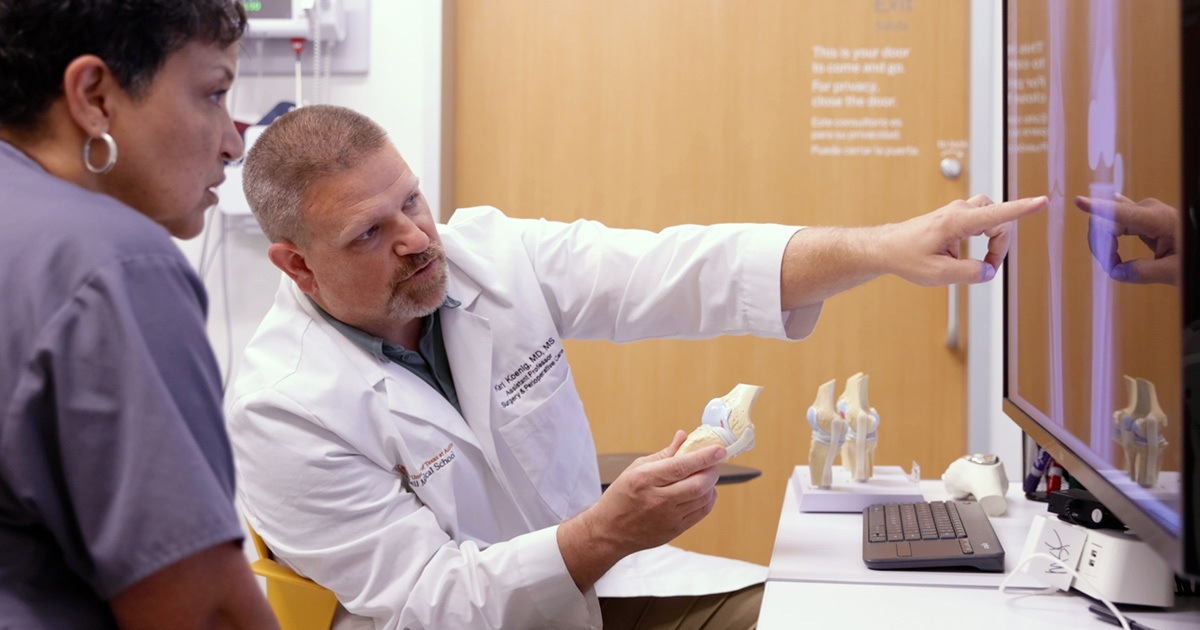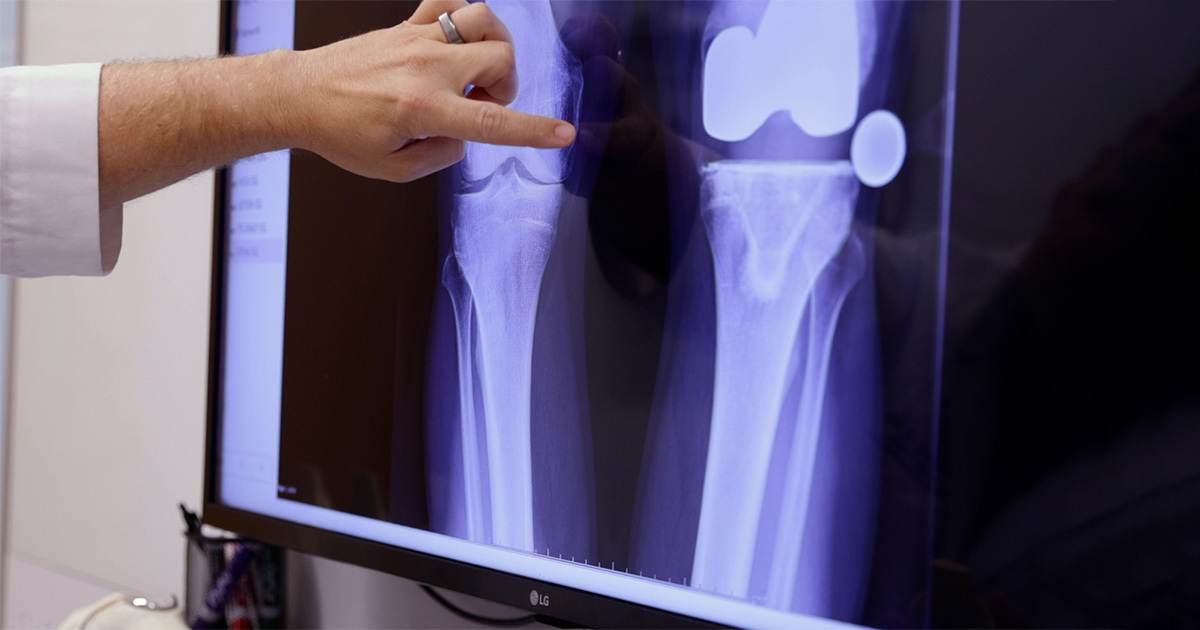Committed to Connection
Striving to better understand you as a person
Reviewed by: Karl Koenig, MD, FAOA, FAAOS, FAAHKS
Video by: Emily Kinsolving and Alyssa Martin
Written by: Ashley Lawrence
For Karl Koenig, MD, FAOA, FAAOS, FAAHKS, an orthopedic surgeon and the Executive Director of UT Health Austin’s Musculoskeletal Institute, academic medicine is always changing, yet his approach to patient care remains the same. Dr. Koenig establishes connections with patients to better understand their priorities, preferences, and beliefs, allowing him to provide quality treatment that addresses their individual needs.
“I connect with my patients by getting to know who they are, where they’re from, and what they like to do so that I can help them make an informed decision about their care,” shares Dr. Koenig. “I share my expertise about a given procedure with my patients, they share their preferences and values with me, and we work together to determine the best course of treatment.”

The Musculoskeletal Institute takes a multidisciplinary approach to patient care. This means patients benefit from the expertise of multiple specialists across a variety of disciplines caring for them in one place.
The Musculoskeletal Institute care team includes orthopedic surgeons, sports medicine physicians, physician assistants, physical therapists, physiatrists, chiropractors, nurse practitioners, dietitians, health social workers, and more who work together to develop a treatment plan for patients that will help reduce their pain, improve their function, and increase their range of motion.

“When a patient comes to see us, we have everything they need in one place,” explains Dr. Koenig. “Our team of experts come together to partner with the patient to explore their treatment options. As an orthopedic surgeon, I may not have a solution for your problem, but someone on my team does.”
To determine the advantages of this care delivery model, Dr. Koenig and his colleagues are participating in a research study that compares this multidisciplinary approach to more traditional care approaches for patients with arthritis of the hip or knee. Providers and patients will wear Bluetooth-enabled devices to measure how much time is allocated to different aspects of the clinical visit. The team will use this information to inform patient care and improve health outcomes.
“Research is built into our mission at the Musculoskeletal Institute,” says Dr. Koenig. “While some of our research projects focus on improving treatment for certain ailments, many of our projects are focused on improving the healthcare system and making it more patient-friendly. We’re looking at patient-reported outcome measures to learn how to better measure our patients’ pain and function. We’re also looking at how much time a patient spends with their provider, how long their wait times are, and how much time it takes to complete imaging and labs, so we can determine where efficiencies can be improved to create a better patient experience.”
As an associate professor in the Dell Medical School Department of Surgery and Perioperative Care, where he serves as the Chief of the Division of Orthopaedic Surgery, Dr. Koenig’s mission to transform health care involves creating a model healthy city that promotes healthy behaviors.
“I grew up without health insurance, which is why it’s important to me that our community has equitable access to health care” shares Dr. Koenig. “When I finally gained health insurance as an adult, I met a doctor who made me reconsider my career path. I started looking at health care as an option and realized this was what I was meant to do.”
Dr. Koenig also provides education and training for the next generation of orthopedic surgeons as the Program Director for the Joseph Miles Abell, Jr., MD, Clinical Fellowship in Orthopaedic Surgery.
“Medicine is changing rapidly, and we’re in an environment of continuous learning,” says Dr. Koenig. “One of the incredible benefits of working at UT Health Austin is our integration with the Dell Medical School on The University of Texas at Austin campus. We have access to the latest technology and are able to collaborate with research scientists to develop that next level of treatment while also educating and training the next generation of healthcare professionals. I am also fortunate to work with bright, technologically savvy young physicians who constantly challenge me to improve upon our patient communication and care delivery.”